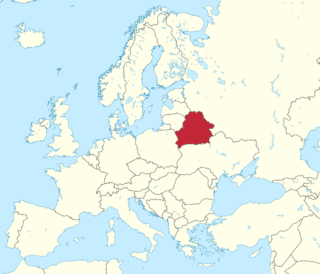We would like to welcome Today Translations’ new special advisor, the experienced military interpreter and friend Duncan Brown. In this article Duncan recalls ‘taking the plunge’ as a British Army interpreter in Belarus, and takes a humorous look at the importance of communication.
The Significance of the Military Interpreter
I spent 24 years in the Army working with languages as a student, trainer, and interpreter or ‘Defence Diplomat.’ To expand on the last two: as a qualified Russian interpreter I was posted to work for the UK Arms Control Agency JACIG (Joint Arms Control Implementation Group). This entailed carrying out inspections in Eastern Europe and specifically the former states of the Soviet Union as per the Arms Control Treaties in Europe.
For those readers who have never worked with interpreters, it is a skill in itself. Maintaining eye contact and speaking to your opposite number without looking at the interpreter can be quite surreal as you know he/she sitting opposite does not understand a word you’re saying until the interpreter kicks in. The tips I always gave the person I was interpreting for were ‘smile’, maintain eye contact with your opposite number, and try not to speak to me!
Once we received notice that we were going to carry out an inspection, our training cycle would kick in. This typically involved a target country brief, language training specific to the mission, possible pitfalls and social issues, as well as Treaty issues. As both an Interpreter and Warrant Officer my responsibilities were twofold: to make sure that the teams were trained to the standard required, and then to make sure, as an interpreter, that I was prepared for the possible issues that could arise with regard to the legalities of the treaties. The Treaty issues were always our responsibility to keep up to date with, but the social side is a minefield (as I will explain later).

As we were not the brightest ‘squaddies’ back then, we would push the acronym K.I.S.S.at our officers as much as we could. It was most certainly not an invitation to lock lips (and if you have seen a picture of me, I have a face only a mother could love!) – it means ‘Keep It Simple, Stupid’!
This would then, in theory, avoid any misunderstandings and mistranslations. It is worth noting at this point that when we joined JACIG as new interpreters we had a steep 6 month learning curve that involved learning the language and very specific vocabulary of the treaties in Russian as well as becoming an expert in equipment recognition.
Normally, the Senior Inspecting Officer (SIO) and his interpreter would talk about the possible Treaty pitfalls so the latter could prepare for such eventualities as part of this training cycle. Being an interpreter on inspections is the most mentally demanding job I ever did in the Army as you were always ‘working’ with the SIO either during the inspection, at meals, going out in the evening, and even on post-inspection cultural tours. You could tell the interpreters of the team on the plane home, they were the ones who were exhausted and fast asleep.
Bathing in Belarus
On one occasion things did not go quite to plan as a certain SIO declined all offers of pre-inspection training because he was ‘too busy’. As both the interpreter and the Warrant Officer I was nonplussed to say the least. I needed to educate the said Officer on social and cultural considerations in Belarus prior to an inspection (thinks to make small talk about and subjects to avoid, like getting into discussions about Belarus’ long-standing President Alexander Lukashenko, for example). This lack of preparation complicated the mission from the outset, and I never had any idea where his conversation was going. This included random topics such as renewable energy windfarms, and the fact that his dogs regularly worried the local sheep. To this day I can still remember the Russian word for a sheep’s stomach valve!

In order to make this lack of communication more obvious to the Officer in question, myself and ‘RAF Flight Sergeant N’, an excellent sidekick, decided to be more visual than verbal and started to issue verbal Red and Yellow cards, like a football referee. A yellow card meant the subject matter was teetering close to irrelevant and complicated, and a red card meant the subject was a complete nightmare or untranslatable.
These interesting red and yellow interjections appeared during conversations, and had to be explained to the smiling Belarussians. This was actually easy enough when you did it in a language that the SIO did not understand, as everyone was in on the ‘joke’ except him.
We would also normally have been able to get around the country in a helicopter, but the depth of the snow on the ground at that particular time was about 4 feet, so we ended up travelling the length and breadth of Belarus in a minibus. Unfortunately a minibus isn’t as noisy as a helicopter, so again I was trapped with ‘Lieutenant Commander Difficult’ (the name our SIO had earned). I spent most of those long journeys either hoping he would go to sleep or contemplating throwing him out the bus and blaming it on a dodgy door.
During the cultural tour towards the end of the inspection we visited a monastery in the middle of the country where the waters were said to be on a par with Lourdes. Due to the aforementioned weather conditions the waters were nowhere to be seen until the Belarussian Escort Officer brushed away a thick coating of snow revealing an ice pool. If our SIO had talked to me before the inspection he may have known what was coming – but he hadn’t and he didn’t.
‘Oops.’
The Belarussians have a slightly unusual tradition by British standards, which my Lieutenant Commander was about to discover. This involves plunging one’s body into ice cold pools, rivers or streams as a sign of good health and machismo. At this point, the Escort Officer broke the ice using one of the armed Police escort’s pistol butts, stripped off to his birthday suit and jumped in! Flight Sergeant ‘N’ and I looked at each other and complained of sympathetic hypothermia, as the Belarussian Officer jumped out saying that he felt brilliant. I turned to Flight Sergeant ‘N’ and asked him to grab the camera (always carried on inspections) and turned to the Lieutenant Commander explaining that it would be considered a serious insult if he did not follow suit.
As the Escort Officer was towelling himself down with a pair of old socks and saying it was especially cold, I explained to the Lieutenant Commander that it was an invitation to jump in. Reluctantly, of course, he stripped off, and in good old Officer fashion, complained about the lack of changing facilities and towels before being coerced in. The sound of his chattering teeth and muffled cursing drowned out the clicking of the camera operated by the good Flight Sergeant. When he emerged from the icy water his body was showing just how cold it was. And all of it was on camera too.

The potential aftermath of not listening to an interpreter [Photo: Lauri Väin]
What remained of the inspection was a much more restrained affair with the Lieutenant Commander complaining of chilblains, frostbite and hypothermia all at the same time. Unfortunately for him, our sympathy-meter was, like the climate, well below zero.
After returning from inspections it was customary to prepare what we called a ‘back brief’ to the whole Unit to highlight specific issues that may have cropped up on the inspection, both Treaty- and language-related. The Commandant at that time saw the pictures that had been taken, and after drying his eyes, insisted we protect the Lieutenant Commander’s modesty.
At the end of the brief the Lieutenant Commander introduced me to his replacement who was taking over from him as he had been posted to another unit. Funnily enough we had no problems with his replacement who turned out to be very accommodating and far more enthusiastic about engaging with interpreters before missions. He told me some time later that he did get nervous before our first Mission together, but we developed a very good working relationship. I can’t help thinking I scared him into it though…
I believe the moral of this slightly meandering story is one of communication. When working with an interpreter, one needs to take into account the stress and strain on them and it is the responsibility of both to prepare together for the next task ahead. In a nutshell, look after your interpreter and they will look after you.
Having said all that, it may sound a bit like I didn’t enjoy my job but, on the contrary, I loved it because of the challenges (language and otherwise) and above all, the people that I worked with and met in many countries. The best job, bar one, that I did in my 24 years in the Army, hand on heart!

